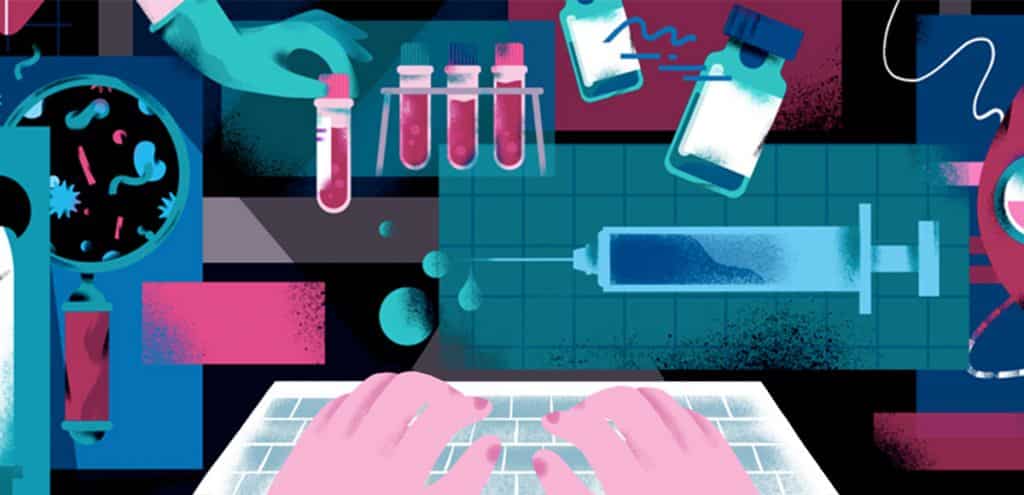Low-cost genetic sequencing is becoming increasingly accessible and profitable for companies, but data protection and ownership remains a key issue for many individuals. Sano Genetics is one of many firms driving precision medicine by creating a more mutually beneficial relationship between patients and pharma companies.
The falling costs of DNA sequencing are leading to serious investments in bioinformatics as companies aim to collect and manage vast datasets and create digital platforms for potentially lucrative rewards.
Patients are set to benefit from advances in genomics by gaining insights into their long-term conditions. Additionally, there is increasing emphasis on maintaining patient privacy and designing higher-quality research with more of the patient’s input.
“The term ‘patient centricity’ has started to become more and more common in pharma, but it means different things to different people,” said Patrick Short, CEO of Sano Genetics, which uses at-home DNA testing to connect people with research opportunities.
“From my perspective, the most important change in the landscape is for pharma companies to make patients or participants true partners in studies – in the way they are run and designed – making it easier and more rewarding to take part in research.
“What this looks like in practice is having patient feedback on research priorities and clinical trial protocols from the outset of the process.”
Sano’s genetics research platform uses a subscription model that charges pharma clients, biotechs, and population health companies to link with and recruit patients with long-term or chronic conditions such as long Covid, multiple sclerosis, and Parkinson’s or Alzheimer’s disease.
Research participants receive free home DNA kits that allow them to easily take part in studies that could help themselves or others in a similar position, while also being able to access their own data and personalized genetic reports through an easy-to-use interface.
The company, set up by three Cambridge University genomics graduates, raised €9.9M ($11M) in Series A funding earlier this week. The firm reported that its revenue has doubled every six months since its inception in 2017.
Sano is taking part in a general shift towards precision medicine, where the diagnosis, prevention, and treatment of conditions is tailored towards a person’s genetic makeup.
Already worth €47B ($52.4B) in 2020, the precision medicine space is set to more than double in value by 2027. Artificial intelligence (AI) and machine learning (ML) are set to act as further drivers of the growth as computer algorithms increasingly become able to detect subtle patterns in health data. For example, the German bioinformatics specialist Indivumed received a €4.3M grant from the EU in January 2022 to bankroll the AI-fuelled discovery of cancer targets from clinical data collections.
Short suggests that a ‘rare disease mindset’ will increasingly be applied to common diseases. “Genomics is telling us that most common diseases are really rarer sub-diseases, and treatment and management strategies will need to recognize this,” he explained.
“Just as cancer has undergone a transformation into one where genomic medicines predominate, I expect we will see every other major common disease be reclassified into genetic subtypes, and advances in AI and ML will accelerate this shift.”
Sano is not the only company attempting to gather and hold health data in a more secure way. In March, German colossus Boehringer Ingelheim teamed up with UK precision medicine software company Lifebit to build a platform that processes anonymized clinical data to accelerate drug discovery. Lifebit aims to create easier access to this information through data federation, in which multiple biobank databases are linked together to function as a single entity.
Rather than using a centralized server to collect sensitive genetic data, a number of companies are also using blockchain-based networks. The aim is to share the clinical data in a secure and anonymous way while accelerating the development of precision medicine.
Short said his company has looked closely at blockchain-based models but found that these typically made data sharing and storage more difficult for both participants and researchers.
“As a result, we’ve seen few blockchain-based providers able to make the technology work in practice,” he said.
“As the technology develops, we will continue to keep an eye on it, as it may become a critical part of the software stack, but as of today we see a greater benefit from more established approaches to data privacy and transparency.”
Cover image via Elena Resko





